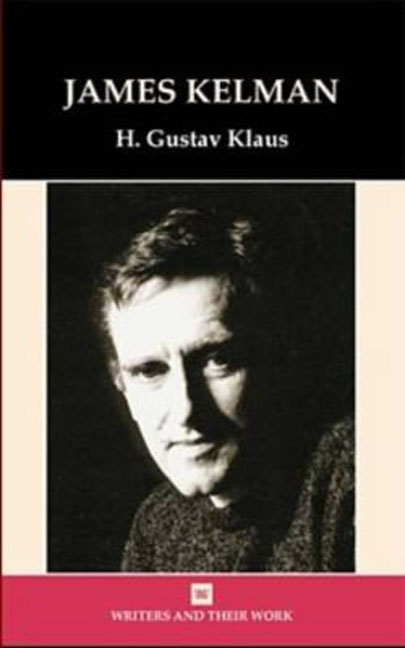Book contents
- Frontmatter
- Contents
- Acknowledgements
- Biographical Outline
- References
- 1 Introduction: ‘Fucking Realism’
- 2 Footloose in Country and City: The Early Short Stories
- 3 Unsettlingly Settled: The Busconductor Hines and A Chancer
- 4 Authority Flouted: The Plays and Essays
- 5 Contacts, Tensions, Emotions: Greyhound for Breakfast and The Burn
- 6 Under Surveillance, Resisting: A Disaffection; How Late it Was, How Late and Translated Accounts
- 7 Postscript: You Have to be Careful in the Land of the Free
- Notes
- Bibliography
- Index
2 - Footloose in Country and City: The Early Short Stories
- Frontmatter
- Contents
- Acknowledgements
- Biographical Outline
- References
- 1 Introduction: ‘Fucking Realism’
- 2 Footloose in Country and City: The Early Short Stories
- 3 Unsettlingly Settled: The Busconductor Hines and A Chancer
- 4 Authority Flouted: The Plays and Essays
- 5 Contacts, Tensions, Emotions: Greyhound for Breakfast and The Burn
- 6 Under Surveillance, Resisting: A Disaffection; How Late it Was, How Late and Translated Accounts
- 7 Postscript: You Have to be Careful in the Land of the Free
- Notes
- Bibliography
- Index
Summary
Although most readers may associate James Kelman with his controversial novels A Disaffection (1989) and the Booker Prizewinning How Late it Was, How Late (1994), his debut took place in the 1970s, in the short-story genre. These early short stories are not only the author's first accomplished literary productions, they also offer an excellent point of entry into his oeuvre. Leaving apart the collection An Old Pub near the Angel (1973), which was brought out by a small American publisher and never reached a British audience, his career can be said to have begun with Three Glasgow Writers (1976), co-authored with Alex. Hamilton and Tom Leonard. Kelman's portion of this booklet comprises only six stories, yet the selection is a fair indication of things to come. Almost from the start the parameters of Kelman's world are drawn here with a few energetic brushstrokes.
‘At least I am elsewhere’ (p. 69) is the startling opening of ‘Where I Was’, a 1,200-word story, in which a nameless solitary vagrant, content to have recently ‘absconded’ from Glasgow, reflects on his immediate position. He is taking a rest on the roadside after having walked many miles during the day through the Scottish countryside. His low-key satisfaction derives from the safe knowledge that nobody is aware of his present whereabouts, that he is ‘well wrapped up’ to brave the wintry gale and not short on tobacco, cheese and whiskey. Small things, this survival kit, but from his point of view of immense importance. What may be an uninviting perspective for a cosily installed middle-class reader is thus for the speaker-narrator of this story a cause of minor gratification. Here he is in the middle of nowhere, at 10 o'clock at night, in the downpouring rain, far from any shelter. And ‘well wrapped up’ turns out to be paper held against his breast by means of a scarf and safety pins. It also means supposedly watertight boots.
The narrator shares his thoughts with us as if this was a perfectly normal state of affairs. He is not out to shock or impress. His set of priorities is simply different. That precisely is Kelman's point. He often confronts us with existences whose everyday life is made up of strategies of survival, who constantly experience defeats but also savour little victories, who doggedly, and sometimes deviously, hold on.
- Type
- Chapter
- Information
- James Kelman , pp. 10 - 29Publisher: Liverpool University PressPrint publication year: 2004

